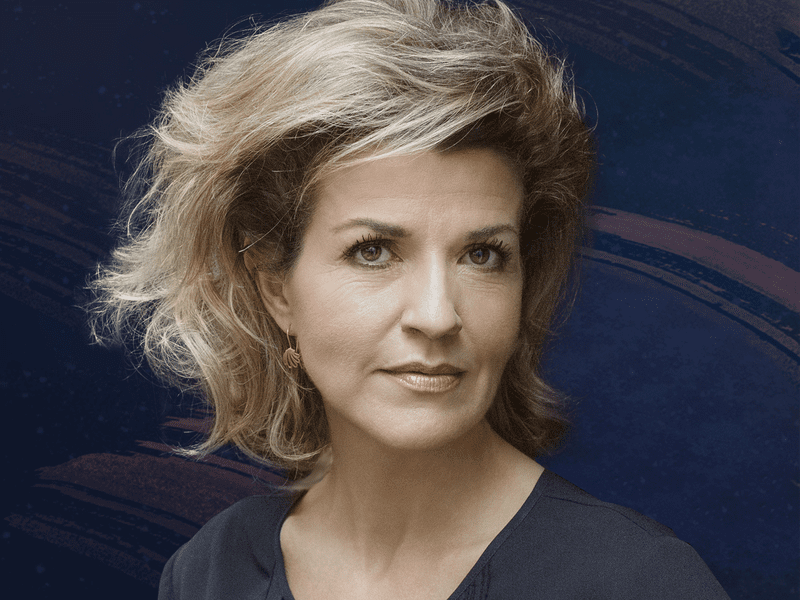[music sound effect]
TERRANCE MCKNIGHT: This is the Open Ears Project.
ANNE SOPHIE-MUTTER: Anyone who has heard great music knows what I'm talking about.
[MUSIC PLAYING: Johann Sebastian Bach’s Jesus Bleibet Meine Freude]
It is music which brings me to a different universe. You know, maybe we are as we are going through life. Maybe one day we are music. Who knows what we turn into?
Maybe just sound… preferably written by Bach
I'm Anne Sophie Mutter, the violinist, and I've chosen by Johann Sebastian Bach, the chorale Jesus Bleibet Meine Freude, Jesus My Joy.
I've heard it first when I was actually a very young child. It was played by the wonderful Dinu Lipatti, the pianist who died early from Leukemia. And I hear the melancholy in the interpretation of Dinu Lipatti.
This was his signature encore; he would play it after every concert. And when he played that he knew of his grave illness. And maybe it was a way of prayer. We don't know.
Music is always a prayer to me, but it's not a religious prayer. It's a prayer which really embraces everybody. And that's the wonderful thing about music. It is the only moment in life for so many people of different religious heritage and cultural background to feel the same things. Not being judged. We are all in it together. And that is what makes music such a gift.
It's just wonderful when the main theme is played. It's not sad, but it's just so serene and beautiful as if already, you know, in a different universe.
You know, it was meant as music to mourn and, actually, it was played for the funeral of my first husband, the father of my children, Detlef Wunderlich.
And it is music which is always with me. Also in joyful moments, Bach is always the answer really for the joyous moments in life as much as for the moments where you doubt where you stand, and what tomorrow brings.
Bach has not only been the most inventive and inspiring composer in music history, but he has been a man of great appetite for life, a man who in any choral work would be able to turn from the most darkest minor key into major within the framework of two bars.
And knowing the words to which Bach has set the music, which actually is joyful at the end by knowing that Jesus is with you – or whoever – that you are not alone, the choral closes and I get great comfort out of that.
Bach is just the master when it comes to elevating us and opening up a very dark sky and there is a light shining from somewhere to look up to.
Bach always brings light to life, and I find that a wonderful gift to humanity.
[OPEN EARS THEME MUSIC: Philip Glass’s Piano Etude No. 2]
TERRANCE MCKNIGHT: That was violinist Anne-Sophie Mutter. She chose “Jesu, Joy of Man’s Desiring” by J.S. Bach. Stay with us, it’s coming up just after the break.
[MUSIC PLAYING: Johann Sebastian Bach’s Jesus Bleibet Meine Freude]
TERRANCE MCKNIGHT: This is The Open Ears Project.
Join us next week. We’ve got composer Steve Reich on the show, sharing his love for medieval music.
STEVE REICH: What’s happening that’s really amazing is that there's these long held tones that are not drones because they are really part of a melody which is being made enormously long. The most obvious piece is a piece I wrote in 1970, Four Organs, it never would have happened if I hadn't heard Perotin.
TERRANCE MCKNIGHT: The Open Ears Project was conceived and created by Clemency Burton-Hill. I’m Terrance McKnight. I’m so pleased to present season two of this podcast to you.
If you like what you hear, please leave us a rating and a review on your favorite podcast platform. And if you’ve got a story about a piece of classical music, we want to know. Email us at openears@wqxr.org.
You can also head to our website, WQXR.org, to check out our other podcasts about classical music and playlists for this and past seasons.
Season two of The Open Ears Project was produced by Clemency Burton-Hill and Rosa Gollan. Our technical director is Sapir Rosenblatt, and our project manager is Natalia Ramirez. Elizabeth Nonemaker is the executive producer of podcasts at WQXR, and Ed Yim is our chief content officer.
I’m Terrance McKnight. Thanks for listening.
Copyright © 2024 New York Public Radio. All rights reserved. Visit our website terms of use at www.wnyc.org for further information.
New York Public Radio transcripts are created on a rush deadline, often by contractors. This text may not be in its final form and may be updated or revised in the future. Accuracy and availability may vary. The authoritative record of New York Public Radio’s programming is the audio record.
